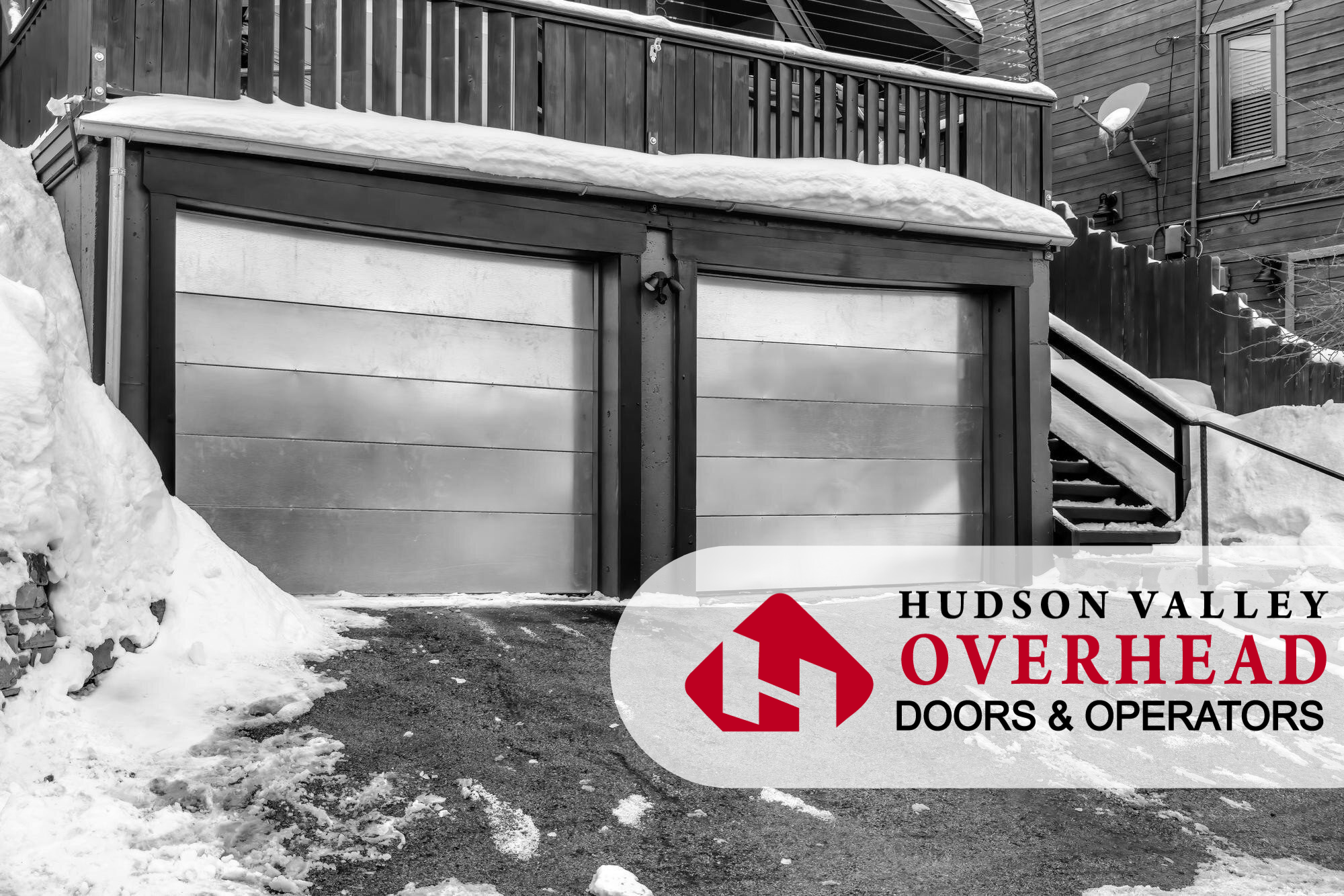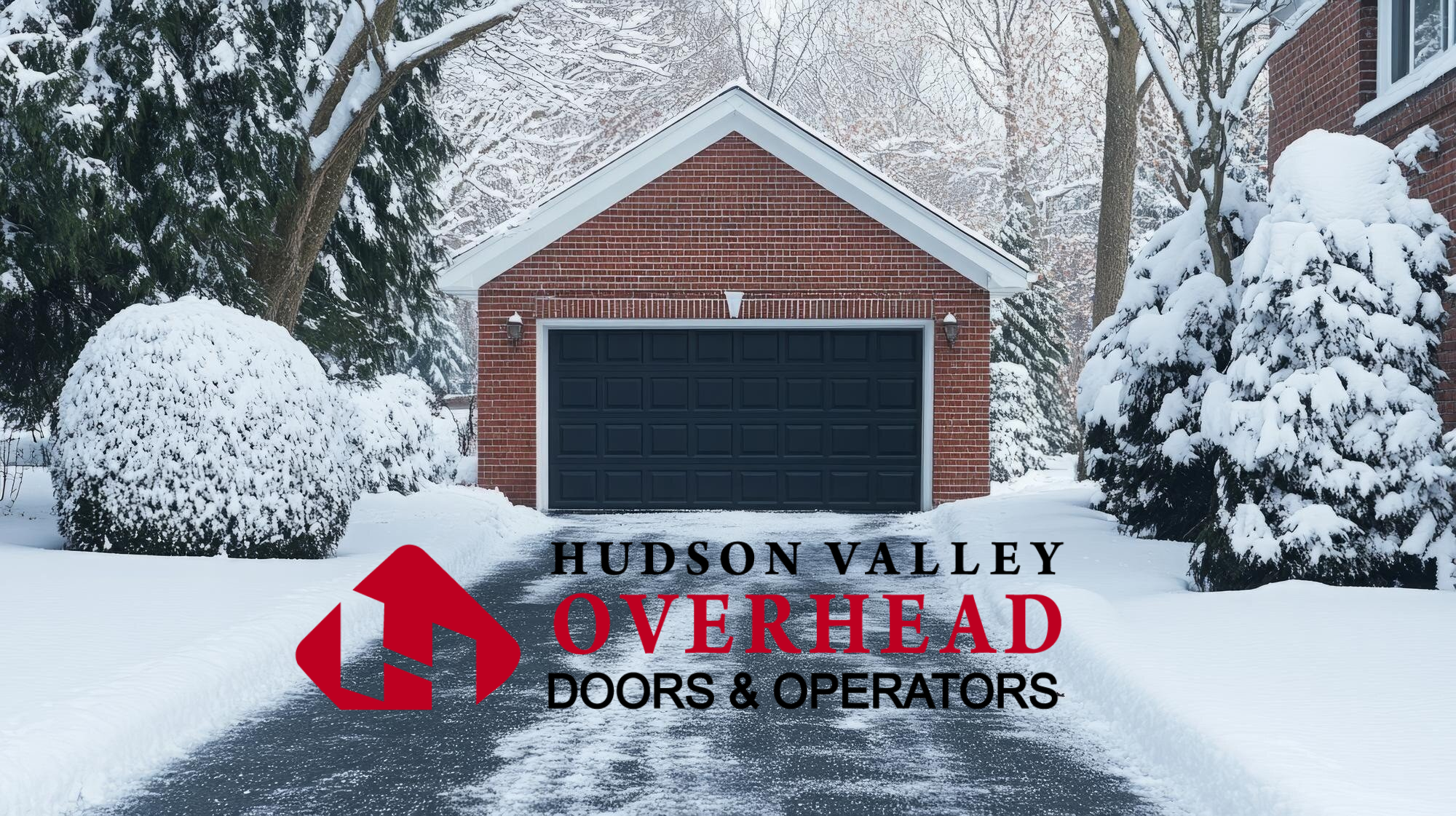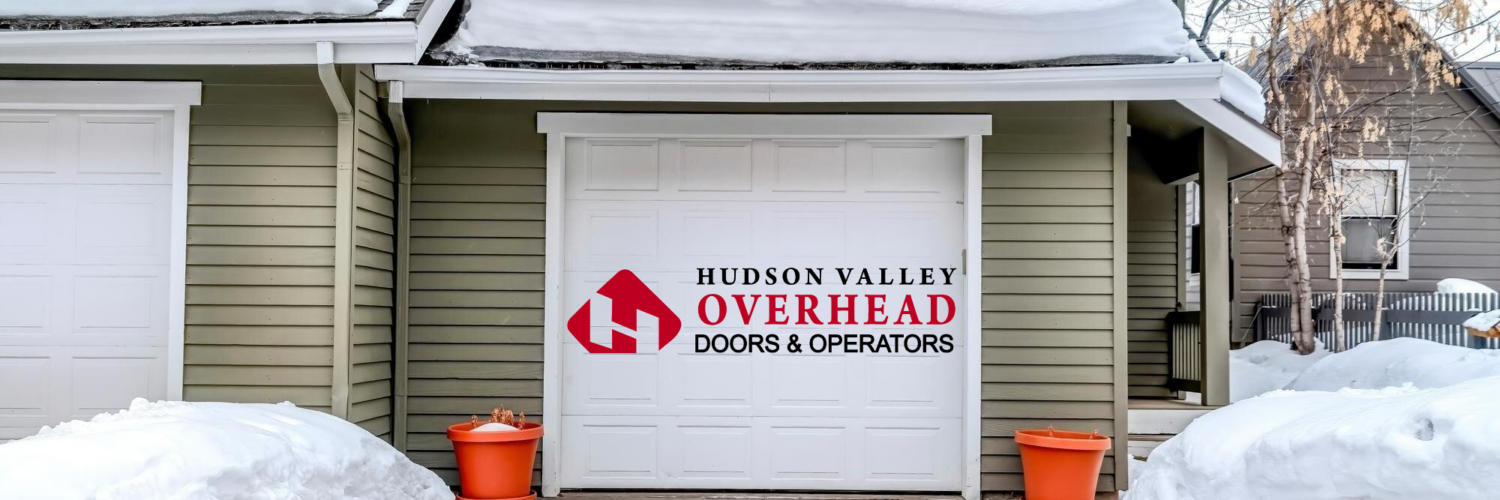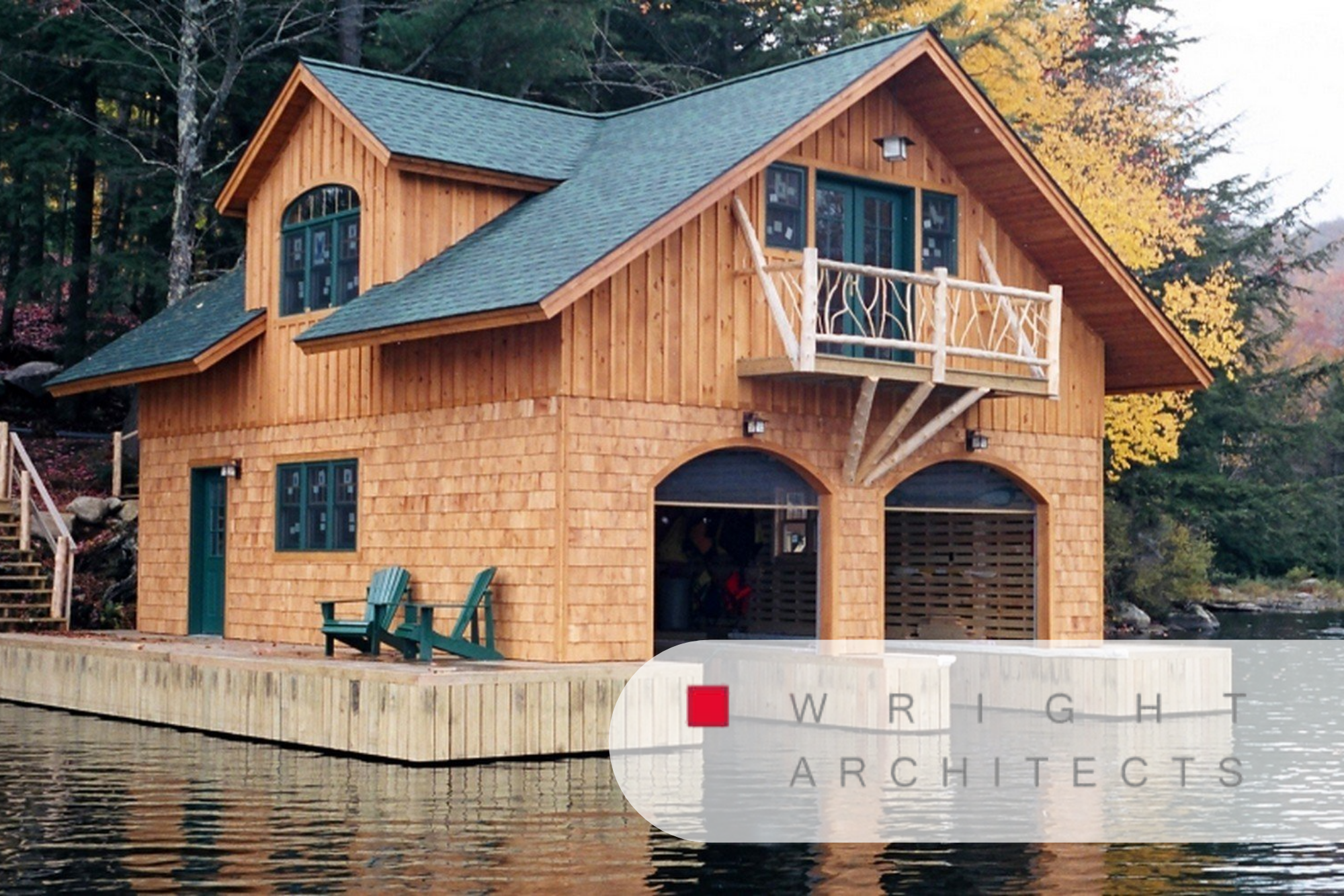Winter in the Hudson Valley is magical—but it can also be brutal on your home’s infrastructure, particularly your garage door. Between heavy snowfall, freezing temperatures, and fluctuating humidity levels, your garage door system works overtime just to function properly. Without proper care, a garage door can become a costly source of energy loss, a safety hazard, or even an entry point for unwanted guests—human or animal.
Whether you’re a homeowner safeguarding your investment, or a commercial property owner in Dutchess County trying to keep operations smooth, regular maintenance is your best defense. This article walks you through essential winter garage door maintenance tips, explains the differences between insulated and non-insulated garage doors, and showcases how expert services from Hudson Valley Overhead Doors & Operators can keep your doors running smoothly all year long.
Why Garage Door Winter Maintenance Matters
Your garage door is often the largest moving part of your home or building. It faces constant wear and tear from daily use—but winter brings an entirely new set of challenges:
- Frozen door seals
- Metal parts contracting and sticking
- Snow and ice buildup in tracks
- Increased energy loss through non-insulated doors
Ignoring these issues can lead to premature system failure, higher utility bills, or even accidents due to malfunctioning doors.

Check and Replace Weatherstripping
One of the most cost-effective ways to winterize your garage door is to inspect the weatherstripping along the bottom and sides.
What to Look For:
- Cracks, tears, or signs of hardening due to cold
- Gaps that let in daylight or drafts
- Pest or rodent damage
Replacing the weather seal is a simple but crucial task. It keeps cold air, moisture, and pests out while maintaining your indoor comfort and reducing energy consumption.
💡 Pro Tip: Don’t forget to check the weatherstrip on the garage door threshold and around any attached entry doors.
Inspect Your Garage Door Tracks
Cold weather can cause metal tracks to contract or become misaligned, leading to doors that struggle to open or close smoothly.
Maintenance Checklist:
- Clear out leaves, salt, or debris
- Wipe the tracks with a damp cloth and mild detergent
- Look for bends or warping in the metal
If your door feels “off-track,” call in the experts. Track alignment and garage door opener adjustments are best handled by professionals to avoid further damage or injury.
Lubricate Moving Parts for Smooth Operation
Low temperatures can cause lubricants to thicken or dry out entirely. A garage door that groans, jerks, or moves unevenly may just need some TLC.
Key Parts to Lubricate:
- Rollers and hinges
- Springs and cables
- Tracks (light application only)
- Bearings in the opener mechanism
Use a silicone-based lubricant or garage door-specific grease—never use WD-40, as it displaces moisture but doesn’t provide long-lasting lubrication.
If lubrication doesn’t resolve performance issues, it may indicate a deeper mechanical problem. That’s when it’s time to explore services like garage door opener repair or garage door cable replacement.
Test the Safety Reverse System
During the winter, garage doors can ice over or freeze shut, making the safety reverse system critical in preventing damage or injury.
Here’s How:
- Place a small object (like a roll of paper towels) under the door.
- Try closing the door using your remote.
- If the door doesn’t reverse direction immediately after contact, your system needs adjustment.
You can request a Safety Reverse System Test from Hudson Valley Overhead Doors & Operators to ensure your opener is compliant with UL 325 safety standards. Learn more about these standards from the U.S. Consumer Product Safety Commission.
Mind the Garage Door Springs
Cold weather reduces the elasticity of torsion or extension springs, making them more prone to snapping—especially in older systems.
If you hear a loud bang in your garage without an obvious cause, you may have a broken spring. This is not a DIY repair—springs are under extreme tension and can cause serious injury.
Get in touch with a professional for emergency 24/7 services or to schedule a garage door spring inspection before it breaks.
Insulated vs. Non-Insulated Doors: What You Need to Know
Not all garage doors are created equal—especially in winter. The material and insulation level of your garage door can significantly impact:
- Energy efficiency
- Noise reduction
- Security
- Aesthetic value
Insulated Doors:
- Often made of vinyl, fiberglass, or steel
- Contain foam core insulation or polyurethane panels
- Reduce heat loss and improve your home’s R-value
Non-Insulated Doors:
- Common in detached garages or storage buildings
- Usually cheaper but less energy efficient
- More susceptible to condensation and freezing
Investing in an insulated sectional door can reduce energy bills, protect your vehicle and stored belongings, and enhance your curb appeal. For professional advice, check out their options for Spencertown garage doors, including beautiful wood and full-view doors.
How Snow and Ice Impact Garage Door Performance
Accumulating snow can weigh down panels, block sensors, and freeze hardware in place.
Prevention Tips:
- Clear snow and ice from the base of the door daily
- Ensure gutters above the door are not leaking or dumping water
- Use garage-safe de-icing solutions sparingly to avoid corroding hardware
You can also request a realignment of safety cable and beam from their technicians to ensure your sensors function even in icy conditions.
Winter Energy Loss: How to Seal the Deal
Your garage may be one of your home’s biggest energy leaks. That’s especially true if your door:
- Is made of thin metal or wood with no insulation
- Has worn-out weather seals
- Is attached to your home or includes a living space above it
To address this, consider installing a new insulated door or upgrade your current one. Hudson Valley Overhead Doors & Operators offers expert new garage door installation, plus services tailored to energy efficiency, like garage door tracks adjustments and opener upgrades.
For more insight on how garage insulation affects your home’s efficiency, visit the U.S. Department of Energy’s guide on garage insulation.
Don’t Forget Roll-Up Gates and Commercial Doors
Commercial property owners in Wappingers Falls and Columbia County should pay equal attention to their doors and gates. Roll-up gates used in storefronts or warehouse settings also suffer in winter due to:
- Ice jamming the coil
- Rusted locks or guide rails
- Improperly functioning openers
With professional help, you can schedule installation of a new roll-up gate or maintenance for your current system. For local service, visit Wappingers Falls garage doors and secure your business against winter surprises.
Signs Your Door Needs Immediate Help
Here are red flags that require immediate professional attention:
- The door won’t open/close
- The opener hums but nothing moves
- Popping or grinding sounds during operation
- Door visibly sags on one side
- You see light coming through when the door is shut
If you notice any of these signs, call Hudson Valley Overhead Doors & Operators for 24/7 emergency service to avoid potential injury or property damage.

When to Call in the Pros
Some winter garage door tasks can be handled solo, but others require experience and precision tools. Here’s when to reach out to Hudson Valley Overhead Doors & Operators:
- Broken cable replacement
- Garage door opener installations
- Roll-up gate repairs or installs
- Safety cable and beam realignment
- Adjustments to tracks and springs
Their local knowledge, reliable service, and strong presence in Dutchess County and beyond make them a trusted choice for any garage-related need. To learn more about their full range of offerings, visit their Garage doors Columbia County page.
Winter Garage Door Maintenance: Final Thoughts
Regular winter maintenance protects your garage door, improves your home’s energy efficiency, and helps avoid costly emergency repairs. Whether you’re a Hudson Valley homeowner or a business owner managing multiple doors or gates, preparation is key.
Take advantage of the full suite of services offered by Hudson Valley Overhead Doors & Operators, including emergency support, cable replacements, and expert installations that keep your home or property secure—even during the harshest winters.
And if you’re unsure where to begin, don’t hesitate to call a professional. Your garage door protects more than just your vehicle—it helps secure your home, your belongings, and your peace of mind.
For additional safety guidance, the International Door Association offers helpful seasonal garage maintenance checklists.
FAQs: Winter Garage Door Maintenance in Hudson Valley
- How often should I lubricate my garage door in winter?
During the cold season, your garage door endures more stress than usual. To keep things running smoothly, it’s recommended to lubricate all moving parts—rollers, hinges, springs, and the opener drive—every 2 to 3 months. Cold temperatures can cause older lubricants to thicken or dry out, which leads to noisy operation and premature wear. Use a high-quality, silicone-based garage door lubricant—not household oils like WD-40, which can attract dust and grime. If you’re unsure what parts need care, a professional service visit can help you stay ahead of any issues. - What’s the difference between garage door insulation types?
Insulation matters more than you might think—especially in upstate New York winters. Polyurethane insulation offers a high R-value and is sprayed into the door for a tight seal, making it ideal for attached garages or homes with rooms above the garage. Polystyrene is a rigid foam panel and provides good thermal protection at a slightly lower cost. Reflective foil barriers reflect radiant heat and are typically used as a DIY add-on. Choosing the right type depends on your home’s layout, usage needs, and climate—but any insulation is better than none. - Can I replace garage weatherstripping myself?
Technically, yes. Many hardware stores sell weatherstripping kits, and handy homeowners can manage the task. However, installation needs to be precise to prevent drafts, moisture seepage, and pest intrusion. Improper sealing can also stress your opener and misalign the door. A professional install ensures a tight, even fit and longer lifespan—especially around curved tracks and bottom seals. - How do I know if my garage door spring is about to break?
Garage door springs usually show subtle warning signs before they fail. You might notice the door opens unevenly, makes a loud bang when operating, or suddenly becomes too heavy to lift manually. Never attempt to inspect or adjust springs on your own—they’re under extreme tension and can cause injury. If your system is more than 7–10 years old, it’s smart to have a technician do a winter checkup. - What should I do if my garage door is frozen shut?
Resist the urge to force it open—it could tear the weatherstripping or damage the motor. Instead, use lukewarm water to melt the ice at the base, or gently chip away at the ice using a plastic scraper. You can also use garage-safe de-icing spray. To prevent repeat freezing, make sure your weather seal is intact and remove any snow or water before nightfall. - Are roll-up gates weather-resistant?
Roll-up gates are built tough—but they’re not invincible. In winter, they can become sluggish due to frozen coils, icy guide rails, or rust-prone locks. Keeping them well-lubricated and scheduling seasonal maintenance can help prevent costly downtime for commercial properties. A roll-up gate is only as reliable as its upkeep. - Should I turn off my garage door opener during power outages?
If your area experiences frequent outages, it’s a good idea to disconnect the opener and use the manual release cord. This allows you to open the door by hand safely. Just be sure you know how to re-engage the opener afterward. Also, if your system has a battery backup, check it each season to ensure it’s charged and operational. - Is an insulated garage door worth the cost?
Absolutely. In climates like the Hudson Valley, an insulated door helps maintain a stable temperature in your garage, reducing strain on your home’s heating system. This is especially valuable if your garage is attached to your home, contains plumbing, or doubles as a workspace. The long-term energy savings and comfort far outweigh the upfront cost. - Can garage door issues affect home security?
Definitely. A malfunctioning opener, warped panels, or a misaligned safety sensor can create vulnerabilities that intruders could exploit. Even a door that doesn’t close flush can invite unwanted guests. A properly functioning garage door with modern safety features and strong seals plays a key role in keeping your home and family safe.
10. How do I book emergency service with Hudson Valley Overhead Doors?
Emergencies don’t wait for business hours—and neither does Hudson Valley Overhead Doors & Operators. You can reach them 24/7 by phone for immediate dispatch to any area in Dutchess County or surrounding towns. Whether it’s a frozen door, broken spring, or failed opener, their expert technicians can quickly diagnose the issue and restore your peace of mind.





